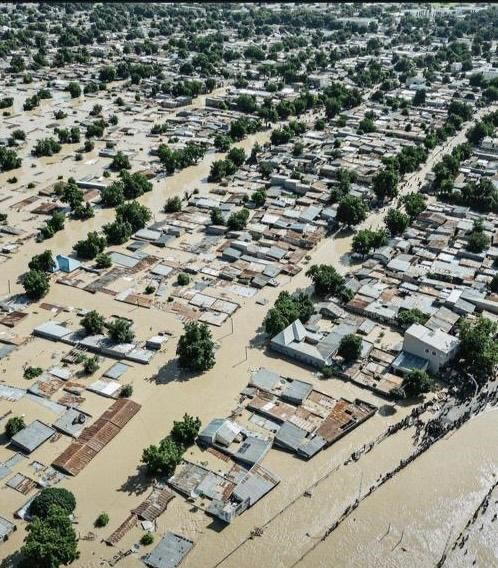Severe flooding in northern Nigeria due to heavy rainfall has caused widespread destruction and the significant displacement of communities who are already impacted by a food and nutrition crisis, violence and insecurity.
Infrastructure such as bridges and roads, and access to essential services such as hospitals, schools and markets have been affected by the floods. Large-scale evacuations have seen many people relocated to overcrowded Internally Displaced Person camps, further straining already limited resources.
The MENTOR team based in Maiduguri are coordinating our emergency efforts to address the expected rise in the mosquito population as flood waters recede over the next few weeks.
Without rapid interventions to protect those displaced by the flooding, most people will become infected by lethal infectious diseases. They are likely to suffer repeat malaria infections until the end of this year, as the rains sustain vast areas of open surface water in which mosquitoes breed. Conditions in crowded camps and poor sanitation also trigger outbreaks of cholera and other diarrheal infections.
From previous experience responding to tsunamis, floods and cyclones, we know that without emergency prevention of malaria and access to rapid diagnosis and treatments, death rates from malaria alone are likely to sharply rise in the coming weeks.
The second major threat to life in this crisis will be pneumonia, and it will shadow malaria infections. Improved access to diagnosis and treatment, on site and by referral to inpatient facilities will be vital to save lives from severe respiratory infections that will fill health facilities. Many of those infected with malaria will also suffer from pneumonia and need even greater medical care.
Thirdly, diarrheal diseases such as cholera are a risk as flood water has already engulfed all the pit latrines and sewers in the area, mixing raw sewage with open surface water and contaminating all that is in contact with the flood water.
With MENTOR’s unique experience and capacity in this area, an emergency team on site and the infrastructure to meet the urgent needs over the coming days and weeks, we are in position to effectively help prevent the suffering and death from these diseases.
- News
Severe flooding in northern Nigeria increases risk of malaria, pneumonia and cholera
- Kathryn Johnson

